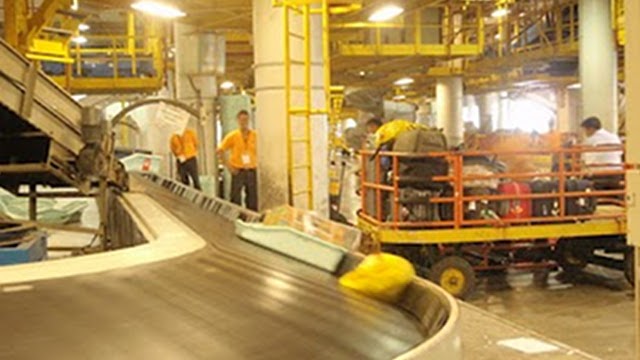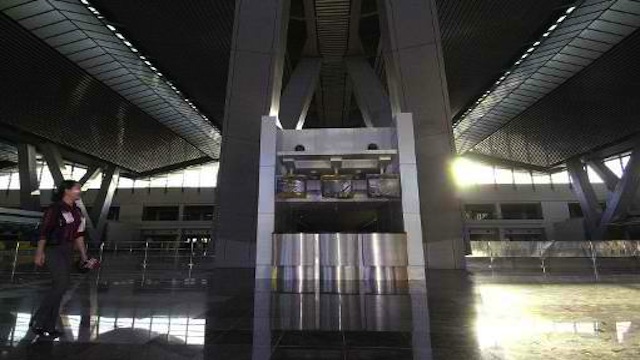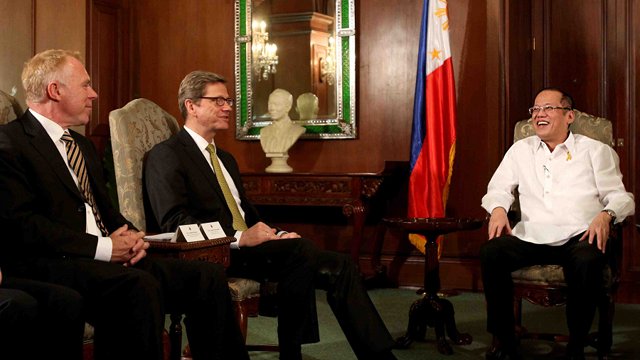SUMMARY
This is AI generated summarization, which may have errors. For context, always refer to the full article.

MANILA, Philippines – The German firm scorned by its “disaster investment” in a Manila airport terminal project over a decade ago wants a fresh start.
Fraport AG, the operator of Frankfurt airport, Europe’s 3rd largest hub, is still smarting over its investment-gone-wrong in the Ninoy Aquino International Airport Terminal 3 (NAIA-3) project, but is ready to look at other opportunities in the Philippines.
Michael Muller, member of Fraport’s executive board and who is part of the 12-man German business delegation led by German Foreign Minister Guido Westerwelle, told reporters on the sidelines of a forum on Thursday, February 7, that the airport operator is looking at potential airport services projects, such as security and ground handling.
He said that after their NAIA-3 investment experience in the Philippines, they are not keen on participating in projects that involve building airports.
“I personally would be happy to find a way for a good partnership again. Maybe there is a way in service providers, not only in infrastructure, but it could also be working together in security or ground-handling,” he said.
Before entering into a new Philippine deal, however, Muller stressed a condition: the Philippine government must first compensate Fraport for its expenses in NAIA-3.
NAIA-3, a ‘disaster’ investment
Muller said Fraport would continue to press the Philippine government to get back its investments.
“It’s a big loss for us,” said Muller. The NAIA-3 project was Fraport’s first overseas investment.
The German airport operator has once described the Manila project as a “disaster” because the Philippine government expropriated the asset in 2001 (The Philippine Supreme Court nullified the contract in 2002).
“We entered a local company at a time when it had a concession. We didn’t know of the legal problem. We were overwhelmed of the situation,” he shared, referring to the contract the government awarded to Philippine International Airport Terminal Co. (Piatco) to build NAIA 3. Fraport was Piatco’s foreign partner in the project.
“We supported the design, construction and financial investment (of the airport terminal) but now we are not able to get back our investments. That means a lot to our company,” he added.
“What we’re looking for is just compensation. The expropriation is in effect. After the expropriation, we need to detemine the just compensation.” Muller said there is no figure on the table.
A lower court is still determining the exact amount the Philippine government is required to pay Fraport and Piatco since the terminal building was almost complete before the project was scuttled over a decade ago.
Fraport lost the NAIA-3 arbitration case before International Center for Settlement of Investment Disputes (ICSID) in 2007. The Washington-based court favored the Philippine government, saying Fraport and its Filipino partner, Piatco, violated the Anti-Dummy Law.

German investments in PH
The NAIA-3 legal saga has stalled previous efforts to increase economic and trade relations between the Philippines and Germany in the past.
Foreign Affairs Secretary Albert del Rosario, who welcomed the first high-level delegation from Germany in over a decade, noted that there is “magic formula” to resolve the NAIA-3 issue, but Germany’s Westerwelle’s visit signifies “our mutual desire to further enhance our ties.”
“I have come to an understanding with Minister Westerwelle that we are looking forward to the positive resolution of the Fraport case,” Del Rosario said in a press briefing on February 7.
Del Rosario met with Westerwelle when he visited Germany in December 2011. It was the first Philippine dignitary’s visit to Germany in 9 years.

Germany is the Philippines’ second largest export market in the European Union (EU), the second largest source of tourists from Europe (over 61,000 in 2011), a key source of foreign direct investments ($21.7 million in 2011), and the 4th largest bilateral donor of official development assistance (ODA) to the Philippines. Trade between the two countries from January to September 2012 amounted to around US$2.6-billion.
Top sectors in which the German companies are participating in the Philippines are: trading, aid and sea freight and cargo forwarding; pharmaceuticals, medical, dental and optical manufacturing; automotive, machines-and components; engineering, metal works, plants and equipment and; textiles, clothing and accessories.
Recent investments include are the Communication Center of Bosch, business process outsourcing centers of Henkel, Deutsche Bank, Siemens and Bayer, as well as the expansion of Continental Temic’s plant in Calamba, Laguna. – Rappler.com
Add a comment
How does this make you feel?
There are no comments yet. Add your comment to start the conversation.